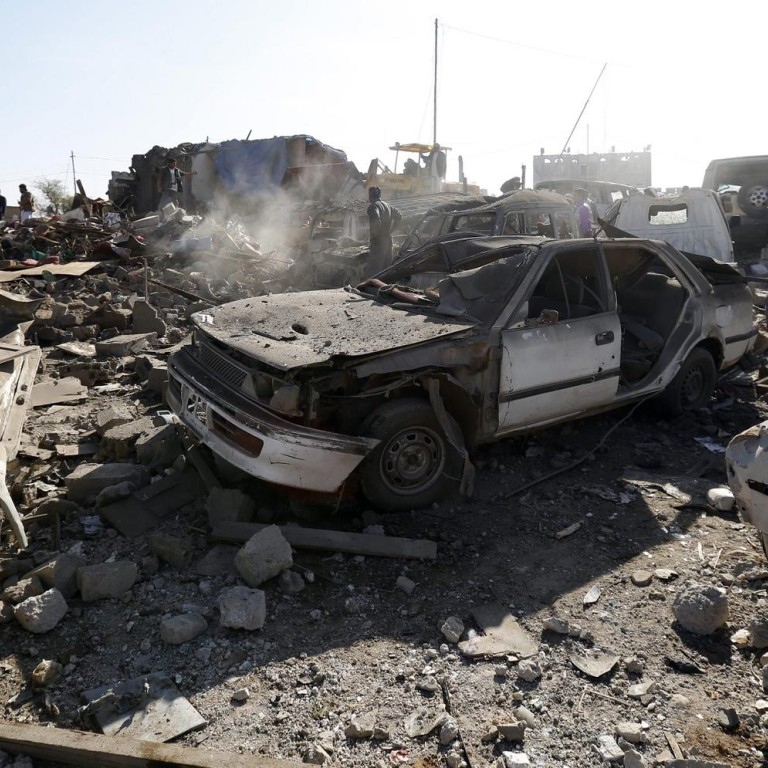
Saudi Arabia launches air strikes on Yemen rebels
Fears bombings could signal the start of a proxy war between Sunni powers and Shiite-led Iran
Saudi Arabia bombed key military installations in Yemen yesterday after announcing a broad regional coalition to oust Shiite rebels, known as Houthis, that forced the country's embattled president to flee. Some of the strikes hit positions in the country's capital, Sanaa, and flattened a number of homes near the international airport.
The airstrikes, which had the support of nine other countries, drew a strong reaction from Iran, which called the operation an "invasion" and a "dangerous step" that will worsen the crisis in the country.
Iran "condemns the airstrikes against Yemen this morning that left some innocent Yemenis wounded and dead and considers this action a dangerous step," Foreign Ministry spokeswoman Marzieh Afkham said.
"This invasion will bear no result but expansion of terrorism and extremism throughout the whole region," she said.
The Saudi airstrikes came hours after President Abd-Rabbu Mansour Hadi, a close US ally, fled Yemen by sea after rebels pushed their way toward the southern port city of Aden where he had taken refuge.
The back-and-forth between the regional heavyweights was threatening to turn impoverished Yemen into a proxy battle between the Middle East's Sunni powers and Shiite-led Iran.
Saudi-owned Al-Arabiya News reported the kingdom had deployed 100 fighter jets, 150,000 soldiers and other navy units in "Operation Decisive Storm".
The Shiite rebels were calling on their supporters to protest in the streets of Sanaa yesterday, Yemen's Houthi-controlled state news agency SABA reported. TV stations affiliated with the rebels and their ally, former president Ali Abdullah Saleh, showed the aftermath of the strikes in what appeared to be a residential area.
Al-Masirah TV, affiliated with the Houthis, quoted the ministry of health as saying that 18 civilians had been killed and a further 24 were injured.
The crumbling of Hadi's government is a blow to Washington's counterterrorism strategy against al-Qaeda's branch in Yemen, considered to be the most powerful in the terrorist network.
Riad Yassin, Yemen's foreign minister, told Saudi's Al-Hadath TV the airstrikes were welcomed.
"I hope the Houthis listen to the sound of reason. With what is happening, they forced us into this," he said.
Other regional players were involved in the Saudi operation: The United Arab Emirates, Kuwait, Qatar and Bahrain joined Saudi Arabia in a statement published by the Saudi Press Agency.
Saudi Arabia and its Gulf allies believe the Houthis are tools for Iran to seize control of Yemen and say they intend to stop the takeover. The Houthis deny they are backed by Iran.
Yemen now faces fragmentation, with Houthis controlling much of the north, including the capital of Sanaa, and several southern provinces.
The Houthis are backed by Saleh, the autocrat who ruled Yemen for three decades until he was removed in a 2011 uprising.
